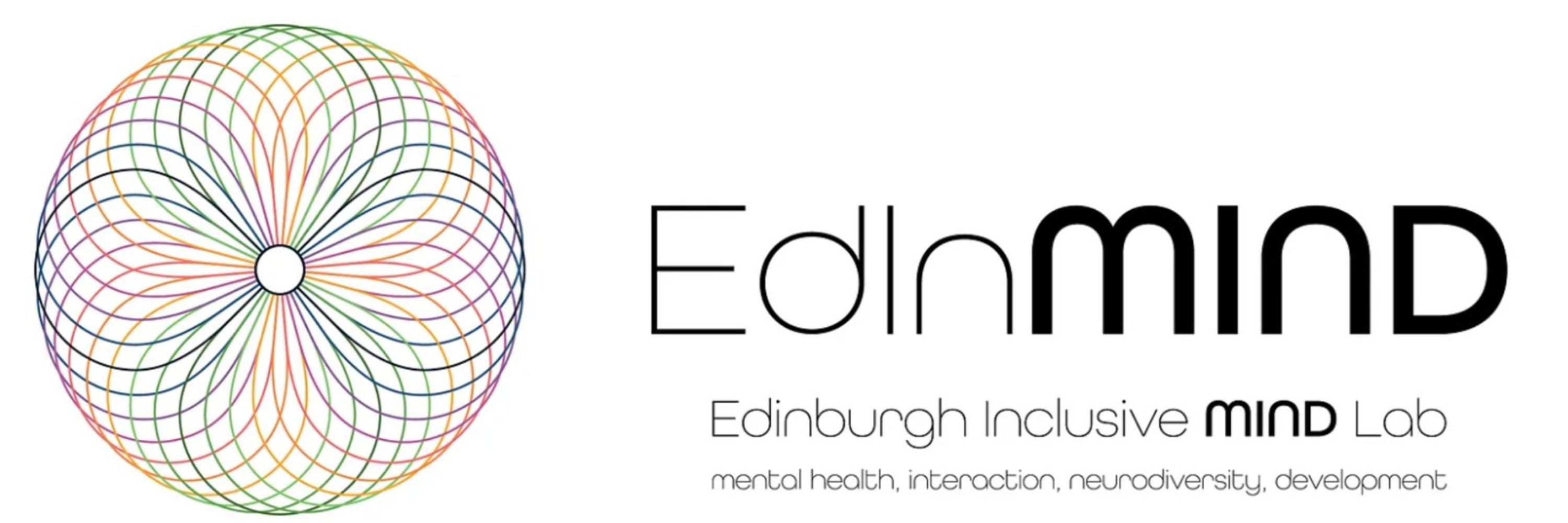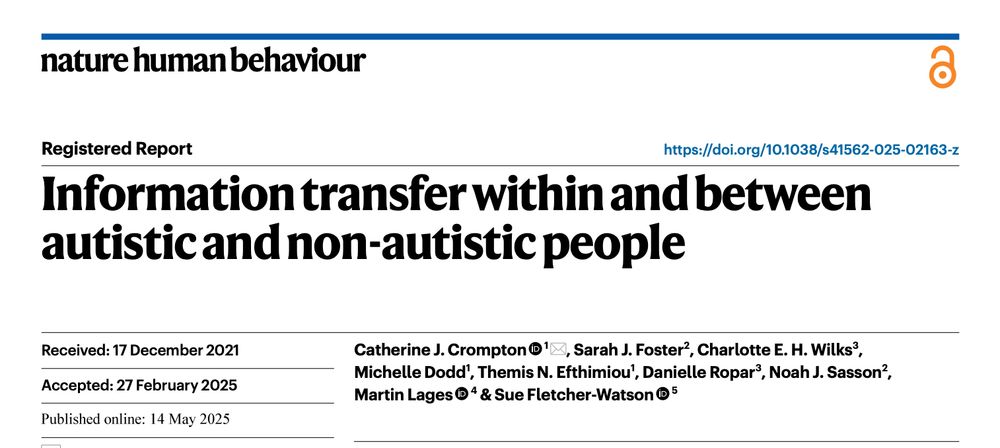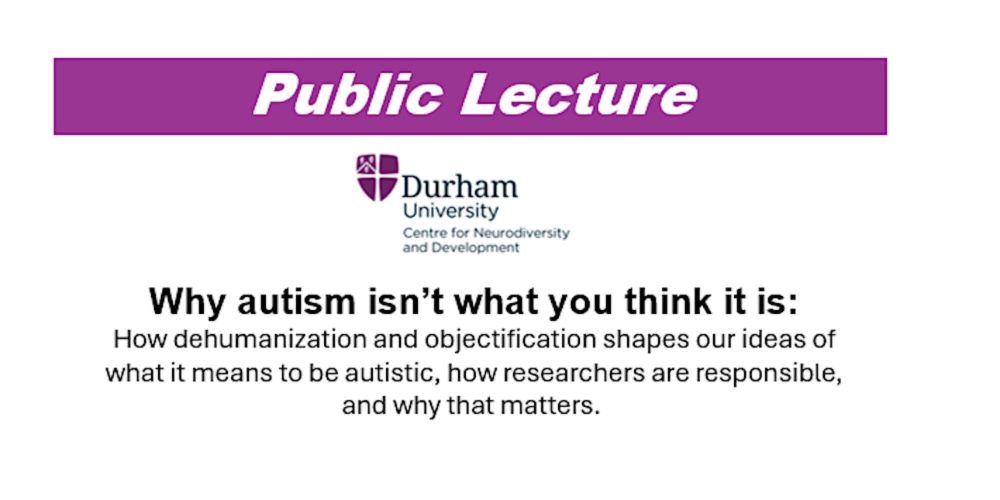Catherine Crompton
@cjcrompton.bsky.social
2.7K followers
360 following
91 posts
Researcher interested in diversity in communication 👩🏻💻 🧠
New parent. Queer 🏳️🌈. Tired.
Posts
Media
Videos
Starter Packs
Pinned
Reposted by Catherine Crompton
Reposted by Catherine Crompton
Reposted by Catherine Crompton
Themis Efthimiou
@themisefth.bsky.social
· Aug 29

Diagnostic status influences rapport and communicative behaviours in dyadic interactions between autistic and non-autistic people
A growing body of research suggests that the behaviours and experiences of autistic and non-autistic people are influenced by whether they are interacting with someone of the same or different diagnos...
doi.org
Reposted by Catherine Crompton
Reposted by Catherine Crompton
Reposted by Catherine Crompton
Dave Sayers
@davesayers.bsky.social
· Nov 15
Reposted by Catherine Crompton
Reposted by Catherine Crompton
Laura Crane
@lauramaycrane.bsky.social
· Jul 29

EXAMINE: Exam inequality for neurodivergent students - Nuffield Foundation
This project will investigate whether certain features of GCSE examination papers might explain the lower average attainment of neurodivergent students in England.
www.nuffieldfoundation.org
Reposted by Catherine Crompton
Katie Cebula
@katiecebula.bsky.social
· Jul 24
Reposted by Catherine Crompton
Monique Botha
@drmbothapsych.bsky.social
· Jul 22
Reposted by Catherine Crompton
Reposted by Catherine Crompton
Reposted by Catherine Crompton
Reposted by Catherine Crompton
Katie Cebula
@katiecebula.bsky.social
· Jul 1
Reposted by Catherine Crompton














![[CALL FOR AUTISTIC ADULTS
LIVING IN THE UK!
.
To take part in our online study about autistic wellbeing.
.
WE'RE LOOKING FOR YOUR VIEWS
If you are:
*An autistic adult (formal diagnosis not required)
*Currently living in the UK
THEN WE'D LOVE TO HEAR FROM YOU!
.
This study aims to identify things that help autistic people live a happy life.
.
By visiting the link or scanning the
QR code, you can find out more and fill out our expression of interest form if you would like to take part.
.
tinyurl.com/STARTS-interest
.
Ethics reference:
21939 16455
.
UNIVERSITY OF STIRLING
.
RSE
The Royal Society of Edinburgh
KNOWLEDGE MADE USEFUL]](https://cdn.bsky.app/img/feed_thumbnail/plain/did:plc:qv2evpkijzbbhbitpxch25fu/bafkreie3xnx7o44sq6jkvgsjanku2rhi7ojyy2y2lxy3xa2ttbbaj3bb7q@jpeg)

